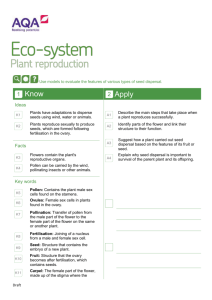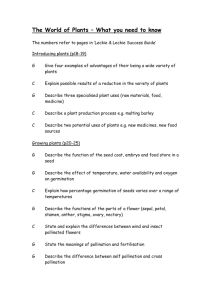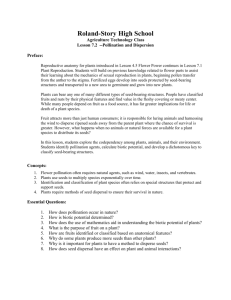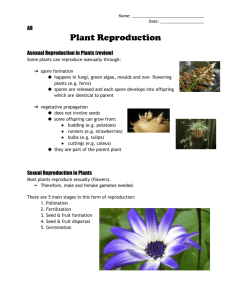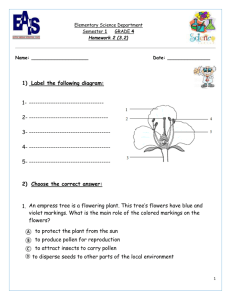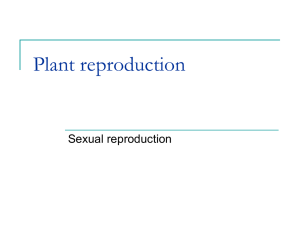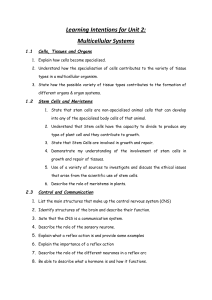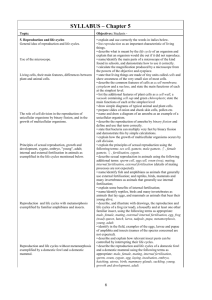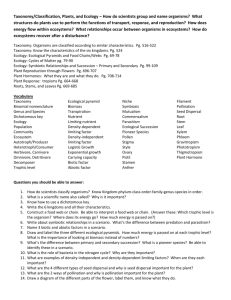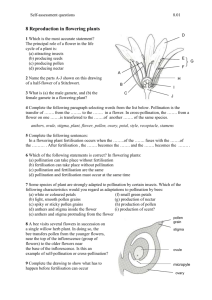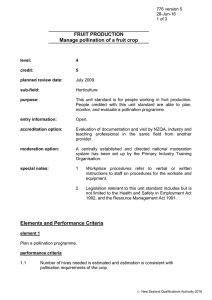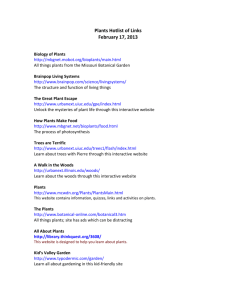ckfinder/userfiles/files/Scheme of Work - Biology 8
advertisement
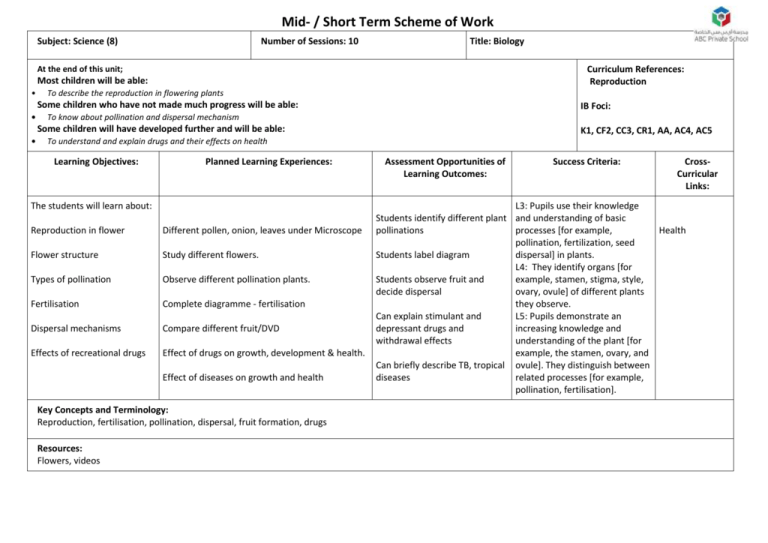
Mid- / Short Term Scheme of Work Subject: Science (8) Number of Sessions: 10 Title: Biology At the end of this unit; Curriculum References: Reproduction Most children will be able: • To describe the reproduction in flowering plants Some children who have not made much progress will be able: • IB Foci: To know about pollination and dispersal mechanism Some children will have developed further and will be able: • K1, CF2, CC3, CR1, AA, AC4, AC5 To understand and explain drugs and their effects on health Learning Objectives: Planned Learning Experiences: The students will learn about: Reproduction in flower Different pollen, onion, leaves under Microscope Flower structure Study different flowers. Types of pollination Observe different pollination plants. Fertilisation Complete diagramme - fertilisation Dispersal mechanisms Compare different fruit/DVD Effects of recreational drugs Effect of drugs on growth, development & health. Effect of diseases on growth and health Key Concepts and Terminology: Reproduction, fertilisation, pollination, dispersal, fruit formation, drugs Resources: Flowers, videos Assessment Opportunities of Learning Outcomes: Success Criteria: CrossCurricular Links: L3: Pupils use their knowledge Students identify different plant and understanding of basic pollinations processes [for example, Health pollination, fertilization, seed Students label diagram dispersal] in plants. L4: They identify organs [for Students observe fruit and example, stamen, stigma, style, decide dispersal ovary, ovule] of different plants they observe. Can explain stimulant and L5: Pupils demonstrate an depressant drugs and increasing knowledge and withdrawal effects understanding of the plant [for example, the stamen, ovary, and Can briefly describe TB, tropical ovule]. They distinguish between diseases related processes [for example, pollination, fertilisation].
